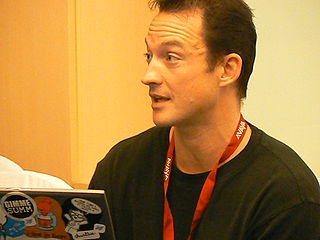A Quote by Jason Schreier
One of the successes of Kickstarter is that it takes the guesswork out of greenlighting games. Publishers of larger games have to carefully choose which titles they publish, lest they lose a bunch of money on a quirky game that doesn't sell. Kickstarter is all reward, no risk, since nobody has to pay if the project isn't completely funded.
Related Quotes
I never understood using Kickstarter for commercial purposes. If you want to raise money for commercial purposes, I think you should give someone a dividend. They make money, then you make money. It should be an investment, whereas I think Kickstarter's true purpose is raising money for things that are in and of themselves justifying.
Everybody has something now. It's become very over-saturated, and it's hard to weed out what's good, what you should watch and what you have time to watch. And Twitter was much less crowded, at the time, and it was an easier way to reach people. So, the combination of having a great video, a lot more access to people through Twitter, and having Kickstarter be this new thing in. We tapped into it, at its inception, and got people interested in it just based on the concept of what Kickstarter was. The timing was right.
All experiments that are related to the games when you have humans versus machines in the games - whether it's chess or "Go" or any other game - machines will prevail not because they can solve the game. Chess is mathematically unsolvable. But at the end of the day, the machine doesn't have to solve the game. The machine has to win the game. And to win the game, it just has to make fewer mistakes than humans. Which is not that difficult since humans are humans and vulnerable, and we don't have the same steady hand as the computer.































